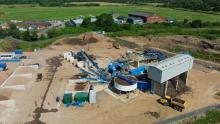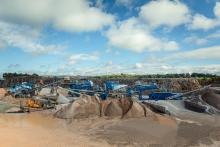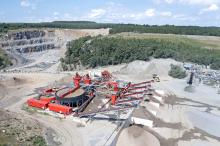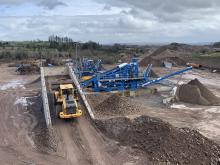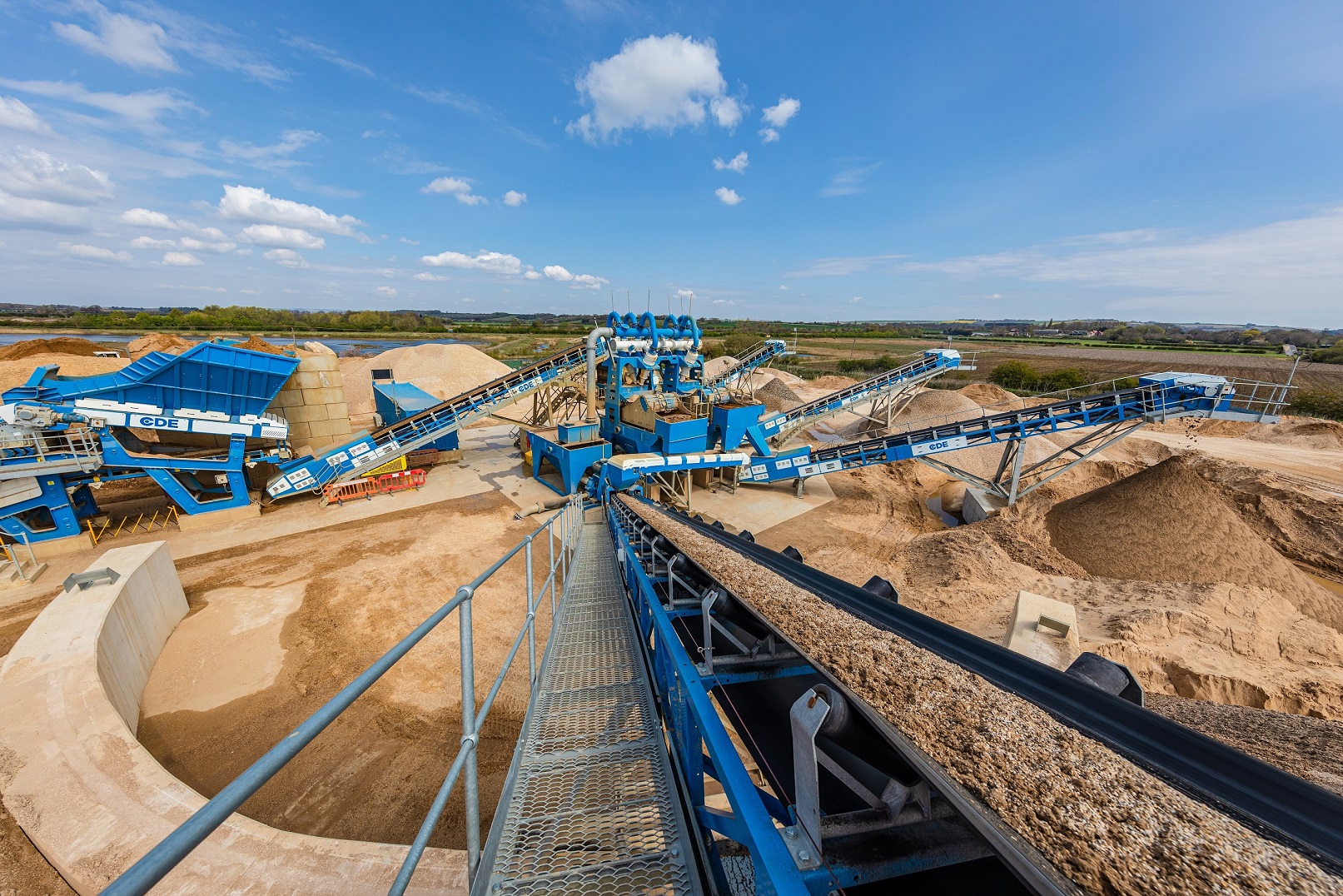
It produces and supplies a range of products to the construction sector, including cement, aggregates, asphalt, ready-mixed concrete, Welsh slate and specialist concrete and clay products, boasting one billion tonnes of mineral reserves and resources.
When Breedon Group acquired North Cave Quarry in Brough, East Yorkshire, in 2017, it inherited three existing plants on the site, which continued to operate for several years.
Area general manager at that time, John Neesham, said inconsistencies in product specification across the multi-plant operation restricted growth.
"We were extracting from two different sites at North Cave and running the material through three different plants. Our biggest challenge was consistency in material output.
"When we acquired the site, our long-term vision was to streamline its operation in a way that successfully aligned the group's commercial and environmental objectives. By consolidating the three plants into one solution, we could minimise our environmental impact while simultaneously reducing operating costs and ensuring the production of premium, consistent products."
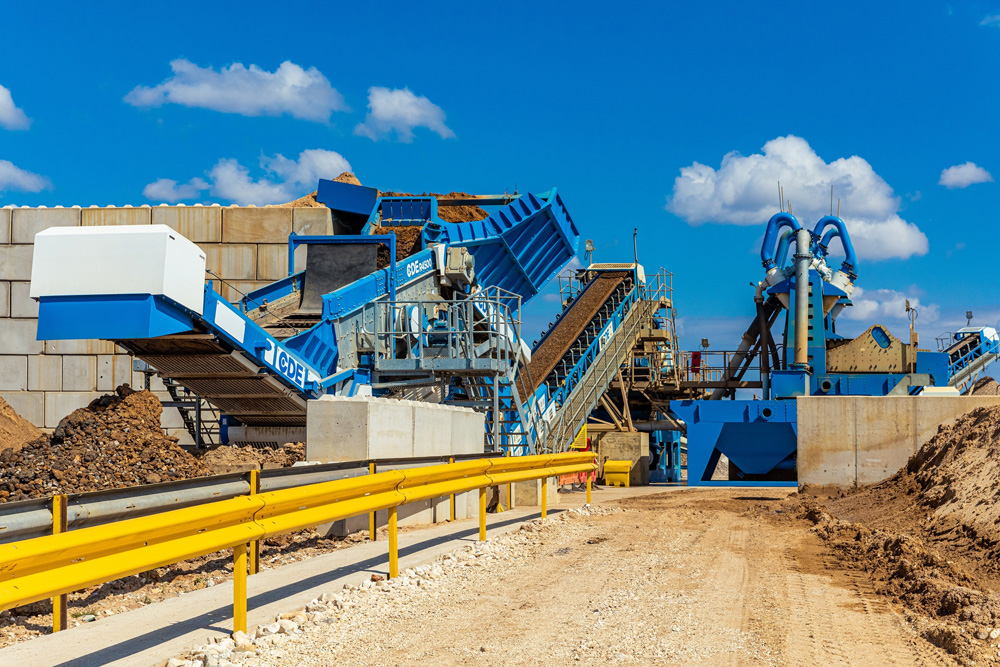
Breedon Group has an obligation, he added, to limit its environmental impact and fulfilling that obligation will sustain the business going forward.
"In order to successfully deliver on our purpose to make a material difference to the lives of our colleagues, our customers and our communities, we – the extractive industry – must adapt. Adapting to better ways of working ensures we maintain a competitive advantage. It protects our licence to operate over the longer term. These are developments that are welcomed not only by the sector but by the communities we operate in."
A competitive tender process was launched, and Breedon Group engaged with a selection of manufacturers for the project.
"Some couldn't provide what we wanted at all," John said, "but CDE proposed more than just a solution that would deliver the positive results we were after. It proposed a partnership with a supplier that shared similar values."
David Kinloch, director of business development – UK and Ireland at CDE, said a detailed site audit and tests on feed material was necessary to propose a solution tailored to Breedon Group's site-specific needs.
"When CDE was invited to tender for this project we sat down with the team at Breedon Group to better understand its requirements and what it wanted to achieve. A lot of time was spent on-site evaluating the three existing plants to see where the inefficiencies were and analysing material to inform the design of our solution."
He said CDE's unrivalled process knowledge combined with its experience offered Breedon Group confidence in its investment.
"We were able to demonstrate our technical ability alongside proven solutions that are delivering for our customers. The results speak for themselves but underscoring any successful project is a successful partnership. Synergy between our two companies and a collaborative design process provided Breedon Group with the reassurance that CDE is fully committed to the project."
Using its unique co-creation approach, which places the customer at the centre of every stage of the project, CDE collaborated with Breedon Group to design and engineer a wet processing solution that would enable the business to achieve its commercial and environmental goals objectives.
CDE proposed a 400tph of sand and gravel washing system designed using proven and extensively engineered modular components. A static system, the solution offers all the same flexibility and capabilities of CDE's modular approach.
"The plant offers the same unrivalled access of a static wash plant but with the benefits of modular components connected through a system of static conveyors. This means the plant can be easily relocated in the future," said Kinloch.
The new system combines all washing operations following the purchase of an R4500 primary scalping screen to handle a difficult and complex feed material.
Oversize aggregates measuring +50mm are isolated and removed by the R4500. The -50mm material continues to the ProGrade rinsing model, producing three washed aggregate fractions with the -4mm material being captured in its integrated sump. The -4mm material is processed by the two EvoWash units, which remove the silts and clays and produce two clean-finished sand products.
Breedon Group's by-products play a hugely important role in the UK's economic development, with the new products enabled by CDE wet processing technology being used for construction and decorative markets.
The plant also features CDE's OptiMax technology, the latest addition to CDE CORE – an innovative range of technology solutions developed to give customers greater control of their plant. CORE uses automation and sensors to monitor and enhance productivity, minimise downtime, automate processes and lower operating costs while maximising profitability.
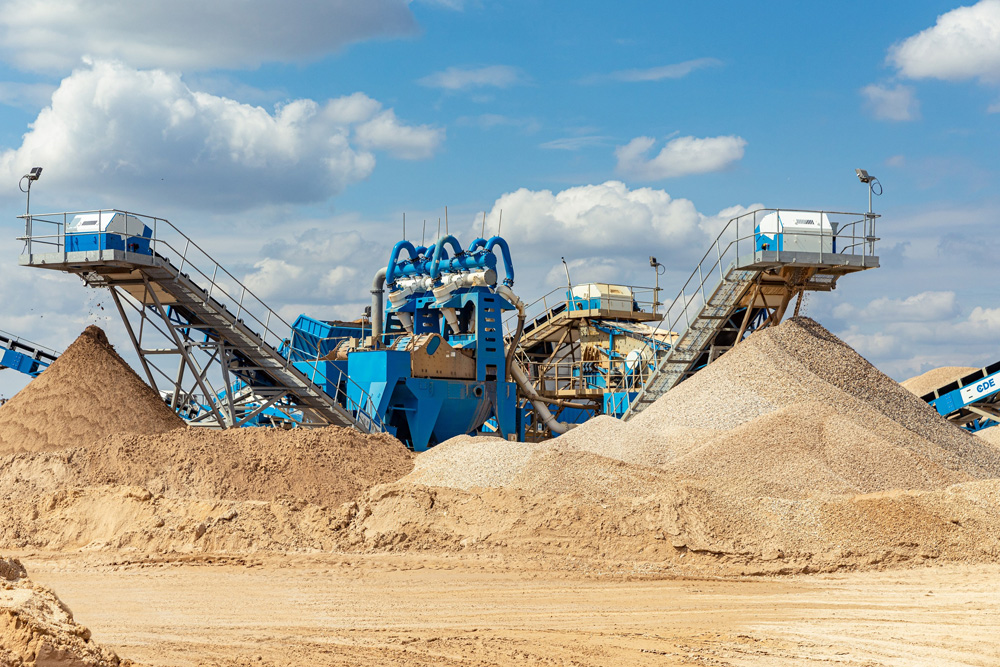
The plant is currently producing five variable sized clean products, including two sands (0-2mm and 0-4mm) and three aggregates (4-10mm, 10-20mm and 20-40mm).
Jonny Danby, territory sales manager for Breedon Group, said the plant offers variety and consistency.
"We're producing two main types of sand; a 0-2mm building sand, which is used for concrete batching plants and paving, and a 0-4mm coarse sand. We're also producing three aggregates; our 4-10mm is generally used for pipe bedding, our 10-20mm Yorkshire Cream is earmarked for the decorative market, and our 20-40mm oversize product is used for restoration works in the wetlands."
Commenting on the consistency of the product, quarry manager Patrick Tighe said there have been zero non-conformities from their technical department.
"We're producing a consistent, in-spec material every week. The cleanliness of our 20mm product is over and above the original specification required. Our customers are extremely pleased with the grading of the products and how we've significantly reduced our moisture content from around 18% down to approximately 9-10%."
The new CDE turnkey solution is Breedon Group's first direct purchase, as the company has acquired a number of other CDE plants through various acquisitions of other quarrying companies in previous years.
"Working with CDE has been an exceptional success – from initial presentations, through the procurement process, installation and the final commissioning," said John Neesham.
"The new wash plant has had a transformational effect on the aesthetics and operational efficiency at North Cave quarry. It has given us exactly what we wanted. It has reduced our footprint and reduced our energy requirements by 40%. At the same time, it has increased our profitability, minimised maintenance costs, and increased operational efficiency by around 60%."
He said the efficient solution enables Breedon Group to reduce its environmental impact too.
"By consolidating the three plants, we've significantly reduced our energy consumption and carbon emissions at the site. We're also recovering higher volumes of material and at a higher specification. By maximising output and material retention, we can extend the life of the available reserves at North Cave."
Concluding, David Kinloch said: "We are proud of the results that have been realised together for the Breedon Group at North Cave. The company sought to consolidate its wash plant operations whilst increasing production throughput and reducing operational costs on site. The new system at North Cave was designed with both objectives in mind. Our engineered solution is delivering positive results for the company and provides them with the technology and infrastructure to continue operating efficiently long term."

